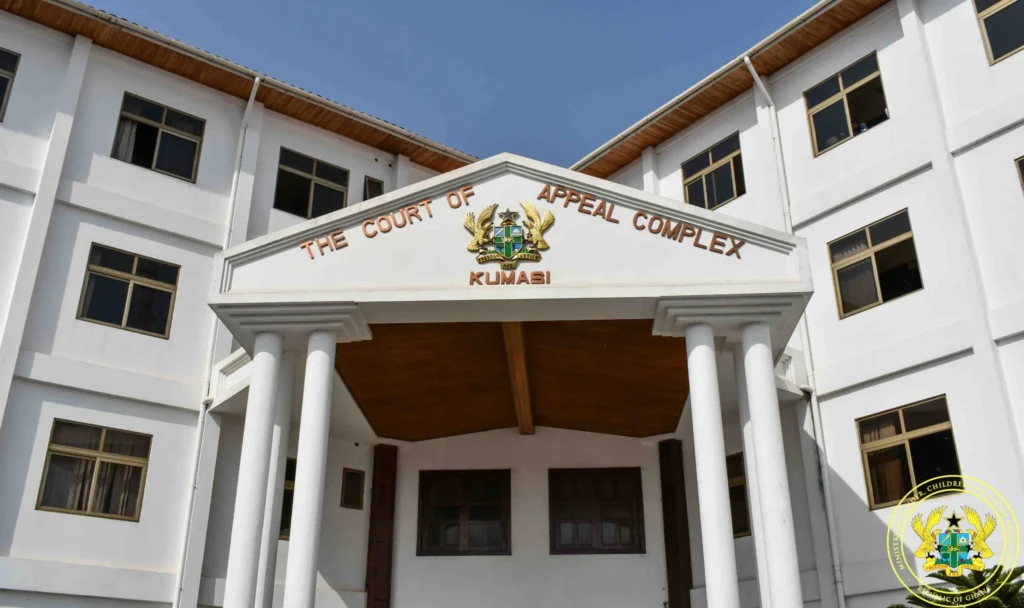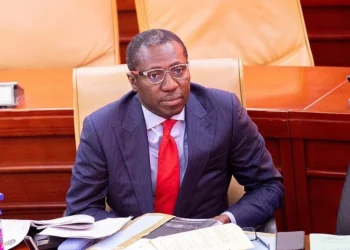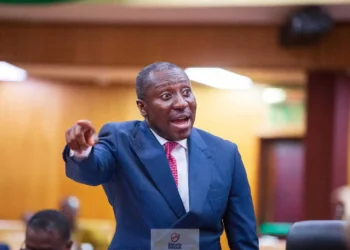As Ghana’s judicial system struggles under the weight of prolonged litigation, Prof. Stephen Kwaku Asare has sounded a strong call for judicial reforms to restore public confidence and ensure timely justice.
According to him, the current state of affairs—where cases linger for years or even decades—is nothing short of systemic decay.
He emphasized that this situation does not reflect justice but rather the erosion of it. Witnesses forget crucial details, some pass away, vital records disappear, legal costs spiral out of control, and ultimately, public trust in the system dwindles.
For Prof. Asare, these are not random occurrences but symptoms of a broken structure, dismissing the idea that these delays are inevitable.
“But let’s be clear: these delays are not inevitable. They result from tactical stalling, institutional tolerance, judicial acquiescence, and billing incentives. The system tolerates them. That’s why we must reform it.
“We need a Rule to set TIME STANDARDS for trials and appeals. Once a trial is scheduled, it must proceed continuously until conclusion. No adjournments. No avoidable breaks.”
Prof. Stephen Kwaku Asare

At the core of his proposed judicial reforms is the introduction of strict time limits for both trials and appeals.
He emphasized that once a trial is scheduled, it should proceed without interruption until it reaches a conclusion, allowing no adjournments or unnecessary delays.
Clear Time Standards Proposed
Furthermore, Prof. Kwaku Asare emphasized that judges must dedicate uninterrupted blocks of time to each trial—eliminating travel, conferences, and other distractions during active proceedings.
Most trials, according to him, involve only a handful of witnesses whose examination and cross-examination could be completed within days rather than weeks.
To further streamline the process, he recommended eliminating interlocutory appeals. In his view, if any party feels that a violation has occurred, they should simply object during the trial and raise the issue during the appeal after judgment has been delivered.

This would drastically cut down on pre-trial delays and prevent unnecessary interruptions.
“Pre-trial motions, disclosures, and conference management can take 3 to 5 months. After that, the trial itself must conclude in days. This will bring most cases, from initial filing to final disposition, under 6 months.”
Prof. Stephen Kwaku Asare
He stressed that this proposal is both practical and grounded in precedent, dismissing any notion that it is merely an idealistic vision.
Drawing from Ghana’s own legal history, he highlighted previous instances where the courts successfully operated within set timelines, demonstrating that such reforms are entirely achievable within the existing judicial framework.
As evidence that such judicial reforms are achievable, Prof. Asare cited the presidential election petitions. The first petition in 2013, lacking any formal timeline, dragged on for nearly nine months before a judgment was delivered.
Due to widespread criticism, however, the Rules of Court Committee introduced a strict 42-day window for subsequent presidential petitions, which the courts successfully adhered to.
“If we can do it for presidential elections, we can do it for corruption trials, land disputes, commercial litigation, and criminal cases. Long, drawn-out trials are not law—they are legacy. And legacy can be reformed.”
Prof. Stephen Kwaku Asare
Anticipating opposition, Prof. Asare acknowledged that some critics would warn of rushed justice and overwhelmed courts.
However, he dismissed these fears as unfounded, noting that justice systems around the world already operate successfully with time standards.
“We are not reinventing the wheel; Speed does not mean recklessness. It means structure, discipline, and planning.”
Prof. Stephen Kwaku Asare
Lawyers Benefit As Judicial Reforms Delay
The real beneficiaries of the current broken system, according to Prof. Asare, are those within the legal profession who profit from protracted cases.
Tactical delays, endless interlocutory battles, and ballooning billable hours serve lawyers far more than they serve the public.

“The real danger is not speed. It is stagnation. The real injustice is not timeliness. It is an endless delay. And the real threat to fairness is not reform. It is refusing to reform.”
Prof. Stephen Kwaku Asare
Prof. Asare stressed that Ghana cannot afford to be paralyzed by fearmongering or resistance to change.
Instead, he called for the nation to move forward with bold, deliberate action to restore the people’s faith in their judicial system.
Accordingly, he issued a direct appeal to the Rules of Court Committee, urging it to take swift action by establishing binding time standards for both trial and appellate courts.
These standards, he argued, are crucial for ensuring not only prompt justice but also fairness in every sense.
“If we don’t act: We will continue to host trials that outlive their urgency; We will continue to erode public confidence in the judiciary; We will continue to deny justice—not by verdict, but by delay.”
Prof. Stephen Kwaku Asare
In his concluding remarks, Prof. Asare characterized the situation as a silent yet pressing crisis that continues to undermine public confidence in the justice system.
He stressed the urgent need for decisive action to address the persistent delays that deny citizens timely resolution of their cases.
According to him, justice is not only about reaching a verdict but ensuring that the process unfolds within a reasonable timeframe, allowing the system to serve its true purpose effectively and fairly.























